Is the piano an index of your mind?
The piano is definitely an index of my mind; in fact, I’d say it is an index of my being... Usually what I play is what I want to express and often cannot verbalize.
So tell us how this works – do the emotions help you create the music or vice versa?
Emotions, according to me, is a very narrow term. Emotions by themselves are multiple. There is no one kind of happiness, there is no one kind of sadness… There are literally a thousand thoughts and neurons that are being fired in the mind, and the fingers have an intelligence of their own. I feel the fingers are basically expressing that multiplicity.
If you gave me a piece of paper and asked me to write what I’m thinking about now, I’d perhaps come up with three or four things. But that’s not the case when I play or create music. In the act of music, I’m pulling into things that even I am verbally unable to articulate. And that is really what makes this experience incredibly humane and truthful at the same time.
Why do you use the word truthful?
I’ve always believed that you cannot lie when you play an instrument, and perform with it. And I’m not talking about lying in the context of going off-key or something. What I mean by truthful is that when you perform, it is a complete reflection of who you are. Almost like how you cannot hide your balding from your barber… I cannot hide myself from my instrument.
So playing the instrument is sort of an all-consuming experience?
Very! Even if I am playing for five minutes, it’s all of me. Like the John Lennon song, It’s All of Me. It’s my best and my worst. I think the rest of my life is a lie, this is the only truth.
When I am playing, I also feel that I am at my human best. And at the end of a performance I usually end up feeling very tired. It’s not like the kind of feeling you get after finishing writing an exam or something; it’s like I have expressed everything I need to express, a sense of having spent all that I have but in a joyous sort of way…
As a musician, I’ve got to be acutely aware of human expression and human communication even with a group of people that I’m sitting with. It’s like taking the pulse of the room. It’s more effort than people think it is. It’s not like saying this room is full of youngsters, so let me play a kuthu song. It’s not like that. What I’m talking about is very visceral; it is at the level of the gut…
After all, music is like creating an information superhighway, a pathway between yourself, your audience and whichever supreme truth you believe in. You need to pull people into that path. You’ve got to have this bull horn and tell them to take that path and travel with you.
The piano is everything for me, it’s my life. Take that instrument away and what am I? Just a shell. Given that it has done all that for me, I owe it so much
So it’s very important for you that the audience gets what you are trying to express?
To some extent it does matter, especially if I am performing it for them. Beyond a point, it doesn’t matter. It is fluid. The fact that they get it in anyway, some way, definitely matters to me. I need for them to be engaged with the music. And I know I can’t expect them to engage with it in the same way that I do; that’s asking the world for too much. But the fact that it made them think, reflect, is definitely heartening and that’s what I can hope for. As long as that happens, I’d like to think I’m successful.
Would that also be your purpose in music – to enable people to think and reflect upon things?
I don’t want to call it purpose, because that makes it sound agenda-oriented. A few years ago, I analysed my own music and discovered that I’m not in the process of making music, I am really in the process of communication. I am communicating some truth to myself. Hopefully, that will align with your truth. As long as that resonance happens with both our individual truths, we have forged a process of engagement and communication.
You see, music is a responsibility. Every artiste has a responsibility. When you are vested with talent, with a craft, it’s a kind of a responsibility because you are communicating things that people are often finding hard to express. You are providing an outlet for people to communicate and that’s a very responsible space. It’s like saying I am creating a common room for ideas, for imagination. You’ve got to be a very good architect and just like an architect who’d take into account ecological factors, environmental factors, aesthetic factors, material factors, you’ve also got to do all that while creating music for people. The moment you put it out there, you’ve got to be responsible because you are taking people to a space where they feel safe and engaged... Where they feel their lives are richer having gone through the experience as opposed to not having gone through it.
I think I am in a very liberated space. Ten years ago, when I first started working with Indian classical music I was very hemmed in by my own pettiness of myself. A certain poverty of the mind, shall we say… I was allowing the environment, the people in it, their expectations, mindsets, paradigms, prejudices, et al, affect my sense of safety. I was not allowing my imagination to soar. I was being very restricted by form and that was showing in the music… Now, I play in this very pan-genre style; I’m not conscious of where one is starting, and where the other is ending. It’s unscripted… I’m allowing some force to control me and I am surrendering to that force
I’m curious about the word safe Anil, why did you use that?
I think this is an artifact of turning 40. For me, this stems from the idea of taking responsibility seriously. Meaning, I have a responsibility to make the world a safer place for you. What is the purpose of music in itself? It’s about providing an outlet for people who cannot express what they feel… They are not able to put it in words, and so they are finding that communion through music. I need to control the environment in such a way that you are able to be your best, and are able to communicate with your imagination, and are able to do so without being fearful of or threatened by anything else around… Otherwise how will your creativity attain its optimum? That’s why I use the word safe.
Plus, safe is also a term I’ve learnt to understand by virtue of working with children. A classroom becomes an entity with life because of the experience of the children in it. This regimented way of education that is largely prevalent, is not really a safe environment for children to imagine… Their thoughts are being monitored. It’s not necessarily a safe environment.
As a result, the role of the arts in education is to allow that safety to come in and for the imagination to roam. To liberate the mind of a child, I need to provide an environment which is happy and cheerful, which allows for thoughts to have free reign and where children feel that they own that particular process and are able to contribute on their own. It’s about creating that safe haven. Music, and the arts, all of these are the Shangri-La of the mind where imagination is allowed free reign; unbridled, unfettered.
By virtue of these significant shifts – engaging with children, turning 40 - has your music also taken on a different direction?
I think I am in a very liberated space. Ten years ago, when I first started working with Indian classical music I was very hemmed in by my own pettiness of myself. A certain poverty of the mind, shall we say… I was allowing the environment, the people in it, their expectations, mindsets, paradigms, prejudices, et al, affect my sense of safety. I was not allowing my imagination to soar. I was being very restricted by form and that was showing in the music. It’s still lovely music. I look back at the music I made ten years ago and it’s very beautiful but within a particular constraint… I’m looking back at my 32-year-old safe and asking, “What and who were you so afraid of? Who was going to say what and why would you care?”
But now I’m in a space where I feel extremely sad and also very liberated at the same time. The latter because I now play in this very pan-genre style; I’m not conscious of where one is starting, and where the other is ending. It’s unscripted… I’m allowing some force to control me and I am surrendering to that force.
And the response is great because finally people are not attempting to classify it into any particular genre. They listen to it and they say, “That was very touching…” instead of asking me, “What genre was that or what piece was that?” And that for me is better..
If my music is allowing people to inhabit a safe holistic space as opposed to a slightly petty, analytical space, then I think I’ve already achieved that sense of liberation.
But you also used the word, sad. Why did you say that?
It’s almost like Siddha. It’s like you discover a sense of purpose, make peace with yourself and your music but you are not at peace with the way the world is going. Not everybody who comes into your space is at the same frequency as you. As a result, you go through events and situations where people don’t engage with your music in a way you’d like for them to and that makes me sad. Sometimes, it hurts me so much that I almost want to throttle them and say, “Just breathe. Enjoy this. Just savour it.”
But I realize that for example many people I am talking to are people like the 25-year-old me, very judged and hemmed in.
Do you mean people have not yet warmed up to your music, even after 12 years?
Funnily enough, the time I stopped caring about what people think, more people seem to like what I am doing. The cliché has actually worked out. Recently, we climbed a mountain in Bhutan and there were three people in the monastery who had heard me in Bengaluru. They came up to me and said climbing the mountain gave them the same sensation as listening to my music – a sense of serenity.
Did that make you happy?
I didn’t feel anything but I do think that I’m in this space where I’m attracting the right kind of energies. I just allow these experiences to sweep over me. I just smile and move on.
The role of the arts in education is to allow that safety to come in and for the imagination to roam. To liberate the mind of a child, I need to provide an environment which is happy and cheerful, which allows for thoughts to have free reign and where children feel that they own that particular process and are able to contribute on their own. It’s about creating that safe haven. Music, and the arts, all of these are the Shangri-La of the mind where imagination is allowed free reign; unbridled, unfettered
Are you comfortably numb?
No. I think I’m kind of Zenning in a way. I’m just saying that these monastery-like experiences are happening, and on the other hand, I come back to Chennai where people ask me if I would wear a wig and perform because the audience is very young. So I often think of the Bhagvad Gita that says you should not be excited by this or disappointed by that. Just allow it to sweep over you. Neither grasp nor reject, just accept.
I am in the process of freeing myself from the trap of this sense of self… These experiences, yes, at some deep level is resonating in a sense of validation – I’m glad, for instance I stuck to my journey – but I’m not allowing myself to linger on that because that again is a false sense of security. I don’t want to savour it too much.
What about your relationship with the piano itself? Has that changed by virtue of your constant journey with it?
I did not choose to play the piano. The piano chose me to play it. When I started playing the piano I was three; I had no idea why. The piano obviously had a plan for me, which is why I keep on using the word responsibility, communion, communication, safe spaces.
I feel very endowed, and endowment has a very strange effect on your psyche. It makes you feel privileged and pampered at one level but it also gives you a sense of responsibility. In a way that that endowment has to be used for something greater than myself.
The piano is everything for me, it’s my life. Take that instrument away and who or what am I? Just a shell. Given that it has done all that for me, I owe it so much. When you translate it, it’s like one of the parables of Buddha where someone keeps comes to him and says, “I feel so deprived, so poor”. Buddha says, “How much money do you have?” The man says, “I have only two gold coins.” The Buddha responds, “Give one of them away and see how that changes the way you feel.” The man says, “Suddenly, I feel empowered.”
Interviewed by Akhila Krishnamurthy
3 comments Comments





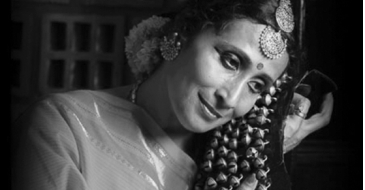
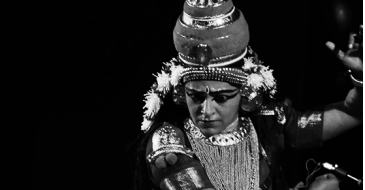
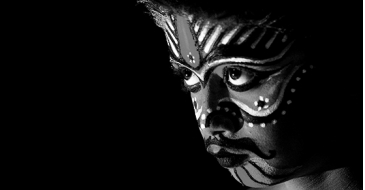
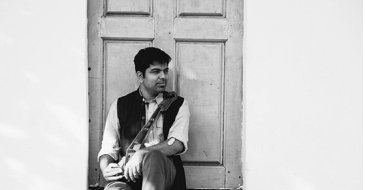
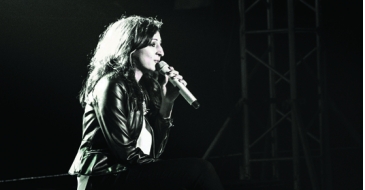
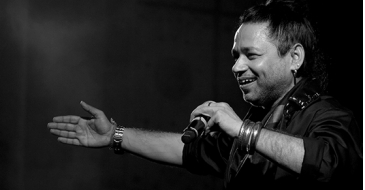
Gowtham
June 15, 2017
Shashi
June 06, 2017
surendran -pioneer
June 01, 2017